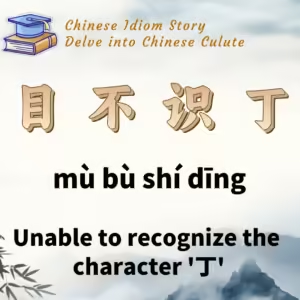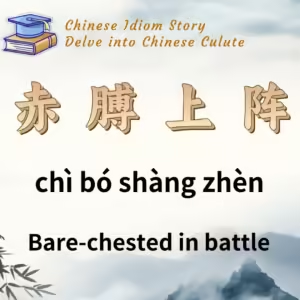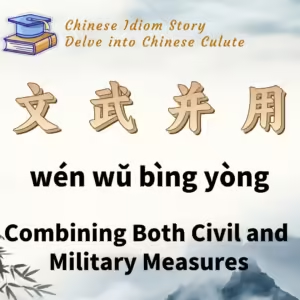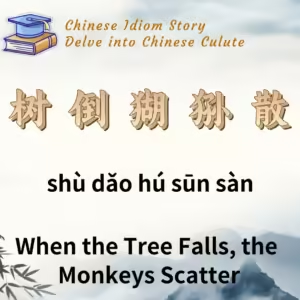
Chinese Idiom: 目不识丁 (Mu Bu Shi Ding)
English Translation: Unable to recognize the character ‘Ding’
pīn yīn: mù bù shí dīng
Idiom Meaning: This idiom describes someone who is completely illiterate, unable to recognize even a single character or word.
Historical Source: “Old Book of Tang” (《旧唐书》), specifically from the biography of Zhang Hongjing (张弘靖).
Idiom Story:
During the Tang Dynasty, Zhang Hongjing, the military governor of Youzhou, had two officers named Wei Yong and Zhang Zonghou under his command. These officers were known for their arrogance and abusive behavior towards soldiers and local people. They frequently drank together into the early hours of the morning, and their drunken state often required guards to carry them home.
One day, in the presence of his superiors, Wei Yong derided the soldiers by saying, “In times of peace, what use are you soldiers? You can pull a two-stone bow, but you’re not even as useful as recognizing the character ‘丁’.”
Here, Wei Yong’s derogatory comment suggested that the soldiers’ only value was in their physical strength and not in their literacy or intellectual capability. The character ‘Ding’ was used to represent the most basic level of literacy, implying that even this minimal level of knowledge was beyond the soldiers’ capability.
The soldiers, though deeply insulted, could only endure the humiliation in silence. The phrase “目不识丁” (mù bù shí dīng) eventually became an idiom to describe someone who is completely illiterate, as they cannot recognize even the most basic characters.






